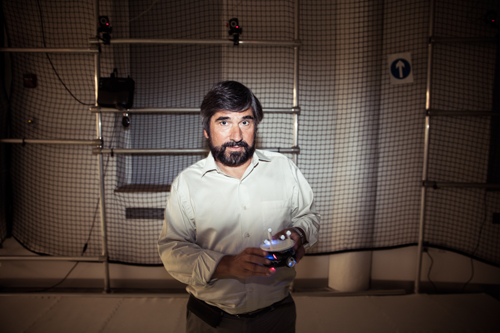Whether it’s a smart sensor network, an automated manufacturing plant, the “internet of vehicles”, or the metabolic pathways in an organism, to a systems engineer it is an intellectual challenge calling for modeling, analysis, simulation, control, and optimization. This point of view has brought together at Boston University a group of world-class researchers and educators with a variety of academic backgrounds but a single shared vision that drives the graduate program in Systems Engineering. The faculty members in the Division and several more affiliates supervise dozens of PhD students with a funding base of over $50 million in grants and contracts, including several high-profile multi-university research initiative (MURI) and National Science Foundation CAREER grants.
The Division offers MS, MEng, and PhD degrees and provides students an opportunity to combine the breadth of knowledge supplied through courses spanning the faculty’s wide range of expertise with the depth that a doctoral thesis demands.
Our graduate program attracts students with different academic and cultural backgrounds. What we seek in our applicants is strong analytical skills, curiosity, and—for those who choose the path to a PhD—a passion for cutting-edge research. Our graduates pursue careers in a multitude of academic disciplines and industry sectors taking advantage of their unparalleled versatility. Many have chosen to take advantage of the rich and unique employment opportunities the Boston area offers to anyone involved with high tech. Others have returned to their homelands with positions at prominent academic institutions in countries such as China, Cyprus, Greece, and Turkey.
I invite you to visit SE faculty profiles to explore our research interests, ongoing projects, award-winning accomplishments, and links to a variety of scholarly resources. In addition to its appointed faculty members, the Division includes a number of affiliates from within the College of Engineering, as well as departments including Computer Science, Mathematics, and Operations Management. It is also closely tied to our Center for Information & Systems Engineering (CISE) and its wide range of activities and industrial connections providing opportunities for internships, exposure to “real-world” systems engineering problems, and eventual employment opportunities.
Professor Christos G. Cassandras
Head, Division of Systems Engineering
